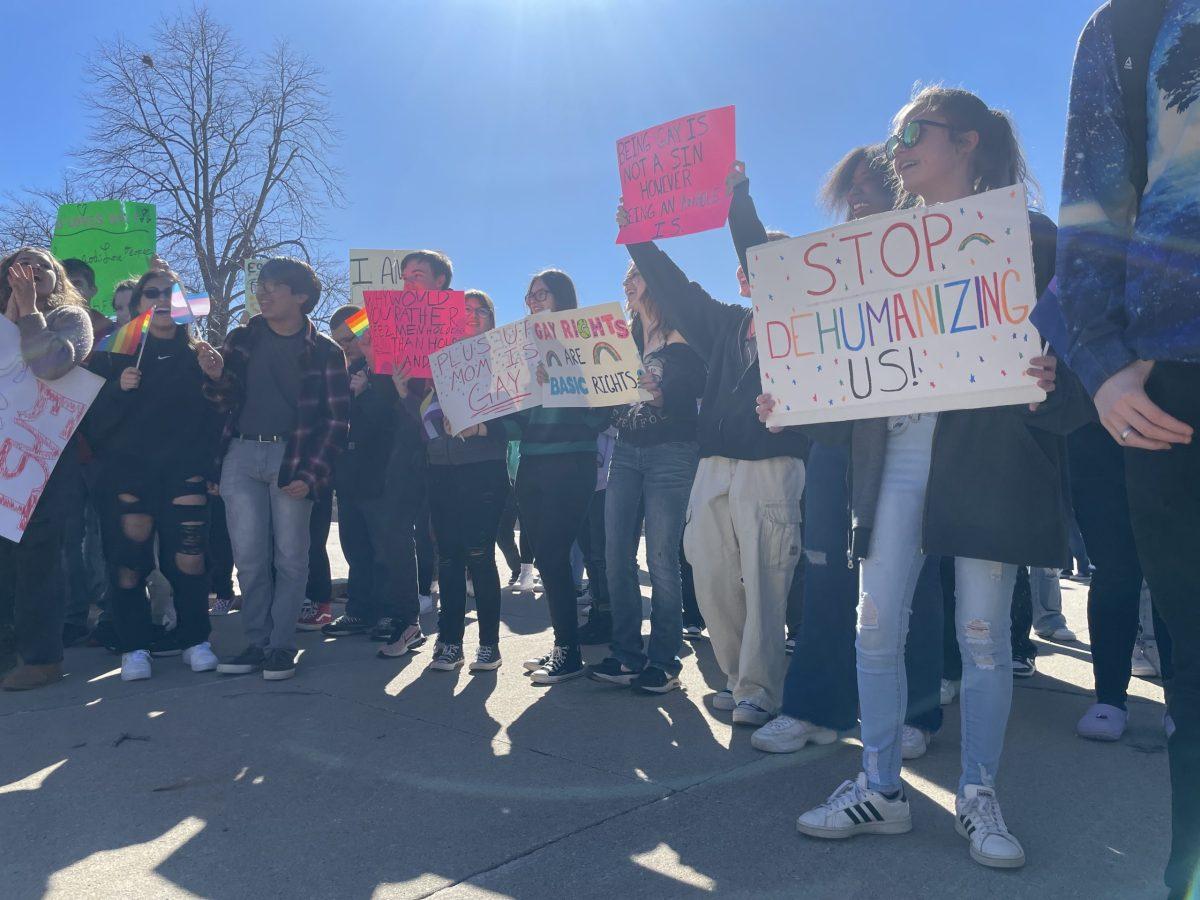Over 50 passionate public comments flooded the Iowa Legislature’s online forum before the Feb. 15 House education committee meeting. They ranged from short exclamations to essays with 20 plus lines, all serving one purpose: to debate House File 348, a new bill opponents have labeled “Don’t Say Gay” legislation.
HF 348, written and sponsored by 34 Republican representatives, limits health and development curricula in public Iowa schools, “prohibiting instruction related to gender identity and sexual orientation.” If passed, the law would restrict curricula in kindergarten through sixth grade.
Rep. Jon Dunwell, R-Newton, is one of the bill’s sponsors. He said it supports parents in the public school system, arguing it’s their responsibility to introduce topics such as sexuality and gender, not schools’. That way, parents can control the values their children are exposed to.
“Those types of values, those types of conversations, are best suited to happen in the home reflecting mom and dad’s perspective,” Dunwell said. He added that leaving this material to the parents creates more trust between them and schools.
He also said sexuality and gender curricula are unnecessary for young students, so it’s unfair to expect teachers to introduce those topics.
Rep. Art Staed, D-Cedar Rapids, is on the education committee and a former teacher. He believes that, rather than helping teachers, the bill would “be a damper on teachers.”
“[Bills like HF 348] make it more difficult for the [teacher shortages] that we already have,” Staed argued, saying it would make teachers overly cautious about potential legal consequences at school.
Staed also said the bill prevents children from learning about diversity. He argued that making curricula adhere to the beliefs of one group of parents was “hiding reality” and detrimental to children’s ability to understand different perspectives.
Some advocates for the bill, such as Drew Zahn of Urbandale-based Christian organization The Family Leader, think learning about these topics could harm young students. In an email, Zahn said HF 348 protects children from “activists who would use schools and schoolchildren to reshape culture in ways harmful to children and contrary to biblical values.”
Zahn also argued that giving parents more responsibility could have a positive impact on parent-child relationships.
“Studies reveal that the largest influence on a child’s educational outcome is positive parental involvement in their education,” Zahn explained.
But others say that parental involvement might come at the risk of harming LGBTQ students. Damien Thompson, communications director of Iowa Safe Schools, said students pay more attention in class and do better academically when they see themselves represented in their curricula.
Thompson also called the bill “bullying behavior” and said LGBTQ students were disheartened to see the leaders of their state government censoring them.
Similar to Staed, Thompson imagined HF 348 would have a negative impact on teachers.
“It creates a nightmare of red tape for educators who don’t know if they’re on the right or wrong side of the law at any given time,” Thompson said.
Similar bills this session include Senate File 83, which prohibits curricula teaching gender and sexuality in K-8, and House File 180, which targets transgender students who are not out to their parents.
Anti-LGBTQ bills aren’t limited to Iowa, either. The American Civil Liberties Union reported 321 bills targeting the LGBTQ community. According to the Movement Advancement Project, a think tank that provides equity research, six state legislatures have introduced bills limiting the mention of sexuality and gender in schools, similar to HF 348.
The education committee met on Feb. 15 and approved the bill for the House floor.
Update:
HF 348, formerly known as HF 8, has passed through committee with a few new additions. Most relate to the logistics of the bill, but one big change requires that it impact grades K-6, as opposed to K-3. As it is out of committee and on the House floor, it will make it through the first funnel of legislation.







